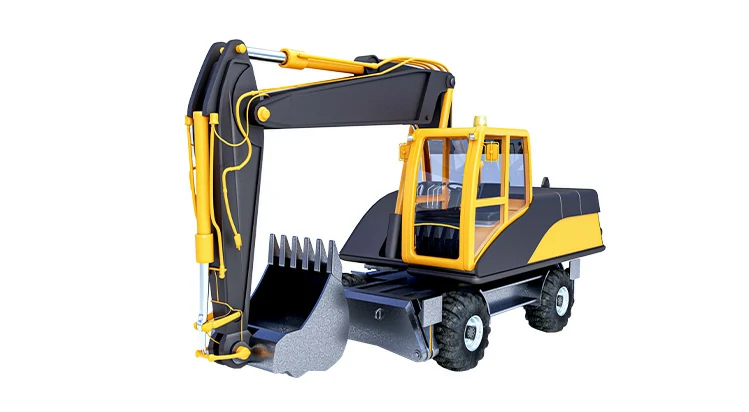mild steel precision round tube
Dec . 30, 2024 04:58
Understanding Mild Steel Precision Round Tubes A Comprehensive Overview
Mild steel, often regarded as one of the most versatile materials in the steel category, is widely utilized across various industries due to its excellent mechanical properties, cost-effectiveness, and ease of fabrication. Among the myriad of forms that mild steel can take, precision round tubes stand out for their unique characteristics and applications. This article aims to explore the significance, manufacturing processes, applications, and advantages of mild steel precision round tubes.
What are Mild Steel Precision Round Tubes?
Mild steel precision round tubes are hollow cylindrical sections made from mild steel, characterized by their uniform wall thickness, precise dimensions, and smooth finish. These tubes are manufactured to meet strict tolerances, making them ideal for applications where accuracy and consistency are critical. The mild steel used in their production typically contains a low carbon content—usually between 0.05% and 0.25%—which imparts it with remarkable ductility, malleability, and weldability.
Manufacturing Process
The manufacturing process of mild steel precision round tubes generally involves several key steps. Initially, steel billets are heated and extruded or drawn to create the desired tube shape. The process may involve cold drawing, which not only enhances strength but also ensures a smooth surface finish and precise dimensions. After the initial forming, tubes undergo various processes like annealing to relieve stresses, pickling to remove oxides and scale, and possibly galvanization for added corrosion resistance.
The precision aspect of these tubes is crucial. Advanced machinery is utilized to monitor and control dimensions throughout production, ensuring that the final product meets specified tolerances. This level of precision is vital in applications where components must fit seamlessly together, such as in mechanical assemblies and structural applications.
Applications
Mild steel precision round tubes are employed across a wide range of industries due to their adaptable nature. Some common applications include
1. Automotive Industry In the automotive sector, these tubes are often used in manufacturing frames, exhaust systems, and various structural components that require high strength and lightweight characteristics.
2. Construction They play a essential role in construction projects, serving as support columns, braces, and other structural elements that require both strength and precision.
3. Manufacturing Mild steel precision round tubes are commonly used in the production of machinery parts, including shafts and axles, where durability and accuracy are paramount.
mild steel precision round tube
4. Furniture Design The aesthetic appeal and strength of mild steel precision round tubes make them a popular choice in modern furniture design, often used in tables, chairs, and decorative frames.
5. Pipelines Due to their ability to handle pressure and flow, these tubes are also found in the construction of pipelines for conveying gases and liquids.
Advantages
The advantages of using mild steel precision round tubes are manifold
- Cost-Effectiveness Compared to other materials like stainless steel or aluminum, mild steel is generally more affordable, making it an ideal choice for budget-conscious projects.
- Durability Mild steel offers excellent mechanical properties that provide high strength and resistance to deformation, making it suitable for heavy-duty applications.
- Weldability The low carbon content facilitates easy welding, allowing for versatile shaping and assembly options in manufacturing and construction.
- Machinability Mild steel can be easily machined, enabling the creation of complex shapes and components, thereby enhancing design flexibility.
- Corrosion Resistance While mild steel is generally susceptible to corrosion, protective coatings and treatments can significantly enhance its resistance, making it suitable for various environmental conditions.
Conclusion
Mild steel precision round tubes are an indispensable component across numerous industries. Their unique combination of properties—such as cost-effectiveness, durability, and ease of fabrication—makes them an ideal choice for a multitude of applications. As manufacturing technology continues to evolve, the capabilities and efficiency of producing these precision tubes will only improve, further solidifying their position in the market. As industries continue to evolve and integrate new technologies, the future of mild steel precision round tubes remains promising, with ongoing innovations poised to expand their applications and enhance their performance characteristics.
 Afrikaans
Afrikaans  Albanian
Albanian  Amharic
Amharic  Arabic
Arabic  Armenian
Armenian  Azerbaijani
Azerbaijani  Basque
Basque  Belarusian
Belarusian  Bengali
Bengali  Bosnian
Bosnian  Bulgarian
Bulgarian  Catalan
Catalan  Cebuano
Cebuano  Corsican
Corsican  Croatian
Croatian  Czech
Czech  Danish
Danish  Dutch
Dutch  English
English  Esperanto
Esperanto  Estonian
Estonian  Finnish
Finnish  French
French  Frisian
Frisian  Galician
Galician  Georgian
Georgian  German
German  Greek
Greek  Gujarati
Gujarati  Haitian Creole
Haitian Creole  hausa
hausa  hawaiian
hawaiian  Hebrew
Hebrew  Hindi
Hindi  Miao
Miao  Hungarian
Hungarian  Icelandic
Icelandic  igbo
igbo  Indonesian
Indonesian  irish
irish  Italian
Italian  Japanese
Japanese  Javanese
Javanese  Kannada
Kannada  kazakh
kazakh  Khmer
Khmer  Rwandese
Rwandese  Korean
Korean  Kurdish
Kurdish  Kyrgyz
Kyrgyz  Lao
Lao  Latin
Latin  Latvian
Latvian  Lithuanian
Lithuanian  Luxembourgish
Luxembourgish  Macedonian
Macedonian  Malgashi
Malgashi  Malay
Malay  Malayalam
Malayalam  Maltese
Maltese  Maori
Maori  Marathi
Marathi  Mongolian
Mongolian  Myanmar
Myanmar  Nepali
Nepali  Norwegian
Norwegian  Norwegian
Norwegian  Occitan
Occitan  Pashto
Pashto  Persian
Persian  Polish
Polish  Portuguese
Portuguese  Punjabi
Punjabi  Romanian
Romanian  Samoan
Samoan  Scottish Gaelic
Scottish Gaelic  Serbian
Serbian  Sesotho
Sesotho  Shona
Shona  Sindhi
Sindhi  Sinhala
Sinhala  Slovak
Slovak  Slovenian
Slovenian  Somali
Somali  Spanish
Spanish  Sundanese
Sundanese  Swahili
Swahili  Swedish
Swedish  Tagalog
Tagalog  Tajik
Tajik  Tamil
Tamil  Tatar
Tatar  Telugu
Telugu  Thai
Thai  Turkish
Turkish  Turkmen
Turkmen  Ukrainian
Ukrainian  Urdu
Urdu  Uighur
Uighur  Uzbek
Uzbek  Vietnamese
Vietnamese  Welsh
Welsh  Bantu
Bantu  Yiddish
Yiddish  Yoruba
Yoruba  Zulu
Zulu 












